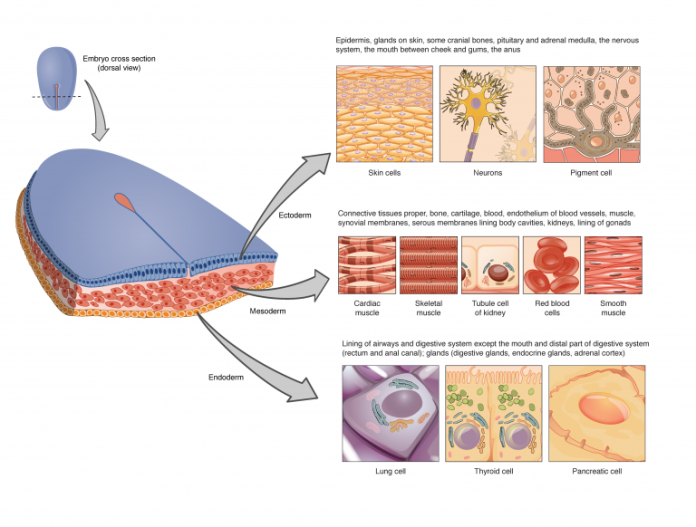Organ transplantation is a remarkable feat of modern medicine, offering a lifeline to those battling end-stage organ failure. It’s a process where damaged organs are replaced with healthy ones from either living or deceased donors, restoring vitality and granting a new lease on life.
What is Organ Transplantation?
Organ transplantation involves surgically removing a malfunctioning organ from a person and replacing it with a functioning one from a donor. This life-saving procedure addresses critical organ failures like kidney, liver, heart, lung, pancreas, and intestinal issues, as well as tissue-related ailments such as corneal blindness, bone defects, and damaged skin.
The Gift of Life: Organ Donation
Organ donation is a selfless act where individuals pledge to donate organs after their death, offering the gift of life to those in need. Organs like the kidney, liver, heart, lungs, and intestines, as well as tissues such as corneas, heart valves, skin, and bone, can be donated to save and improve lives.
Types of Organ Donation
- Living Near Relatives Donation: Immediate family members, including parents, siblings, children, grandparents, and grandchildren, can donate organs such as kidneys, portions of the pancreas, and segments of the liver while they are alive.
- Living Non-Near Relatives Donation: Individuals outside of immediate family who wish to donate out of affection or special reasons.
- SWAP Donors: In cases where a living near-relative donor is incompatible with the recipient, swapping of donors between two pairs can occur, matching donors with recipients who are a better fit.
- Deceased Donor (Cadaver) Donation: After brain-stem or cardiac death, organs and tissues can be donated to continue living in another person’s body. Consent from a near relative or the person in lawful possession of the deceased’s body is required.
Benefits of Organ Transplantation
- Saving Lives: Organ transplantation is a lifesaving therapy for individuals battling end-stage organ failure. Whether it’s a kidney, liver, heart, lung, or pancreas, these transplants offer a lifeline to those in dire need.
- Restoring Functionality: Beyond mere survival, organ transplantation restores functionality, allowing recipients to reclaim their lives. From regaining sight through corneal transplants to breathing freely with new lungs, these procedures enhance quality of life.
- Multi-Organ Transplants: In some cases, multi-organ transplants become necessary, such as heart and lung or pancreas and kidney transplants. Though less common, these procedures showcase the remarkable advancements in medical science.
- Living Donations: The option of living organ donation opens avenues of compassion and generosity. Individuals can donate a kidney, a portion of their pancreas, or even a segment of their liver, embodying the spirit of altruism.
Limitations of Organ Transplantation
- Immunological Challenges: The recipient’s immune system may perceive the transplanted organ as foreign and mount an immune response, leading to rejection. Continuous immunosuppressive medication becomes necessary to prevent this occurrence, posing risks of infections and other complications.
- Shortage of Donors: Despite the profound impact of organ transplantation, there exists a persistent shortage of donors. Thousands languish on waiting lists, their hopes tethered to the availability of suitable organs.
- Surgical Risks: Like any surgical procedure, organ transplantation carries inherent risks. Complications such as infections, bleeding, and organ dysfunction may arise, necessitating vigilant post-operative care.
- Ethical Considerations: Ethical dilemmas encompass aspects like organ allocation, consent procedures, and the commercialization of organ donation. Ensuring fairness, transparency, and respect for autonomy remains paramount in the realm of transplantation.
Conclusion
Organ transplantation is a beacon of hope for those facing life-threatening conditions. By becoming an organ donor, you have the power to make a profound difference in someone else’s life, turning despair into hope and darkness into light. Register today and be a hero in someone’s journey towards a new beginning.
Similar FAQS
What is organ transplantation?
Organ transplantation is a surgical procedure where a damaged organ is replaced with a healthy one from a donor, either living or deceased.
Which organs and tissues can be transplanted?
Organs like the kidney, liver, heart, lungs, and pancreas, as well as tissues such as corneas, heart valves, skin, and bone, can be transplanted.
Who can donate organs?
Both living and deceased individuals can donate organs. Living donors are typically immediate family members, while deceased donors can offer organs after brain-stem or cardiac death.
Why is there a shortage of organ donors?
Despite the critical need for organ transplantation, there is a persistent shortage of donors due to various factors, including lack of awareness, cultural beliefs, and ethical concerns.
What are the risks associated with organ transplantation?
Risks include immunological rejection, infections, bleeding, and organ dysfunction. Continuous post-operative care and medication management are essential to mitigate these risks.
How can I become an organ donor?
You can register as an organ donor through organizations like the Australian Organ Donor Register or express your donation wishes to your family and loved ones.

